Designing Beyond Novelty
Exploring how immersive experiences helps us engage with big ideas
A package arrives in the mail. Inside is an invitation that reads: Your presence is requested at The End. A date four weeks away follows, but no location is given (yet...) What happens between then and now is up to you…
For 28 days, a mysterious entity called “The End” guides you via text message to draw a card from their deck, unlocking a corresponding “quest” that challenges you to consider mortality or what brings meaning to your life.
The mission of the game is to create space for its participants to confront mortality with small daily reflections on life’s meaning and fears about death. A blend of alternate reality game, text message conversation and theatrical installation, it is an immersive, ontological experience, which is the format we’re exploring today!1
📰 What’s the format?
The End, an immersive experience that blends live performances and alternate reality gaming, guiding participants on a personal journey to confront mortality and celebrate life.
Rather than putting on a costume and pretending to be someone else, they ask you to see what happens if you imagine your life in the context of a new circumstance, exploring how a shift in perspective can transform your daily experiences.
The rules are simple:
The game runs daily from 7:30 AM to 11:30 PM; players start by texting when they’re ready to draw a card, which provides their daily quest.
Each quest takes 15–20 minutes to complete, with flexibility to play at any time and access additional resources for deeper exploration.
After completing the quest, players reflect by texting back a word summarizing their experience.
As Adrienne Mackey, the game’s Director and Lead Writer, explains:
The End is a contemplative game that imagines how we live differently when we are consciously aware we will die […] It is an opportunity to engage in examinations of our fears about mortality, to become brave in the face of them, and by thinking about what is wanted out of life, fully make the most of the time we have.
More about “The End”
Daily quests come in a variety of forms, from writing your own obituary, to taking a walk imagining a loved one, or listening to a live person leading you through a guided meditation via phone.
In the second phase of the game, it’s up to you to decide what cards to play. ”The End” is adept at helping you make choices that tailor your journey to your wishes.
The game’s structure slowly increases in intensity – both in terms of content explored and in the ways the game asks players to interact with it.
In the final week, players turn reflection into action, applying their experiences to real-life decisions. Cards in this week include taking a first step to resolve lingering regrets from the past, or articulating the specifics of what a final legacy might be.
The experience concludes with a final reveal: players arrive at a secret address shared days before (a historic cemetery!) where they reunite, celebrate their journey, and toast to the discoveries made over four weeks of exploration.
🎛️ What are the features?
The End is a system that is only operational when actively engaged.
The End is a solo journey, though not one made in isolation.
The End won’t judge or attempt to explain the inexplicable, but instead reflects back the discoveries you have made.
What I like the most about this format is the way it blends different disciplines and art forms all at once. There’s a lot of game design in it: feedback loops, aesthetics, rules, agency, personalization, narrative… There’s also a lot of the learning elements we’ve explored before in this newsletter: active quests, choosing your own adventure, scaffolding, real-life experiences, and reflecting through conversation.
I believe the central thing that made The End successful, particularly as an experiment in storytelling, was the way it required this authorship of its audience. The content of the piece IS them and is played as users are living their lives, potentially allowing any moment’s thought or action to become part of a larger narrative thread we explored over the month. Adrienne Mackey, —Director and Lead Writer
💡 Why is this format effective for learning?
In his book Experience Design: A Participatory Manifesto, Abraham Burickson (whom I just recently met! More on this soon…), wrote that immersive experiences tend to focus on novelty in physical immersion. But the problem with novelty is that it wears off quickly.
There are three levels of immersion (and they are often stacked): physical, psychological, and ontological.
For an experience to have impact, it must be not only physically immersive, but also psychologically immersive. For it to really matter, it must be ontologically immersive as well […] it must resonate with an audience’s sense of meaning.
Awe-inspiring moments are great, but they only stick with us if they connect to our personal experiences.
In The End, the premise is simple: by taking time each day to stop and consciously confront mortality, one engages more deeply and lives more fully. It’s an ontological experience that transforms your way of thinking.
Research and Data
Research lays the foundation for a great learning experience by making it intentional and well-designed, while collecting data afterward helps measure impact, refine insights, and improve future iterations. Easier said than done, and something I know I need to get better at!
The team behind The End did this masterfully, using research not just as a starting point, but as a guiding force throughout the entire design process. In addition to content specifically about death and dying, the team researched other areas including game design, different genres of gameplay, interactive theater works that could provide inspiration, and simulation-based learning. If you’re curious, everything is compiled here.
The team also generated an archive of knowledge about players emotional state throughout the month of play, reflective quotes about their experience, metrics on the piece’s psychological impact, demographical basics about their lives, metrics about their messaging styles and timing, response to various cards throughout gameplay… the list goes on and on. This is particularly interesting because a common question when designing learning experiences usually is: ‘how do I measure success?’ (It’s probably not a matter of open rates or subjective metrics of ‘engagement’).
💌 An invitation
In Odyssey Works, authors Ayden LeRoux and Abraham Burickson invite you to think about different ways to involve your audience completely. How could you design an experience that transforms the way someone thinks or perceives the world?
As you reflect on this, here are some key questions the creators of The End considered while designing the experience.
What are you designing next, and how can you ensure your participants are fully immersed? Not just physically and psychologically, but in a way that deeply resonates with what they truly care about…?
🪁 Life Lately
This section is a little peek into what I’ve been up to these days (projects, music, books, and more…)
Playing 80 days on my phone (I feel like I need to write about it next!)
Turning websites into games
Enjoying Antigua (first two pictures), slowly coming back to photo embroidery (3), and learning more about the mythological origins of mezcal… (4)
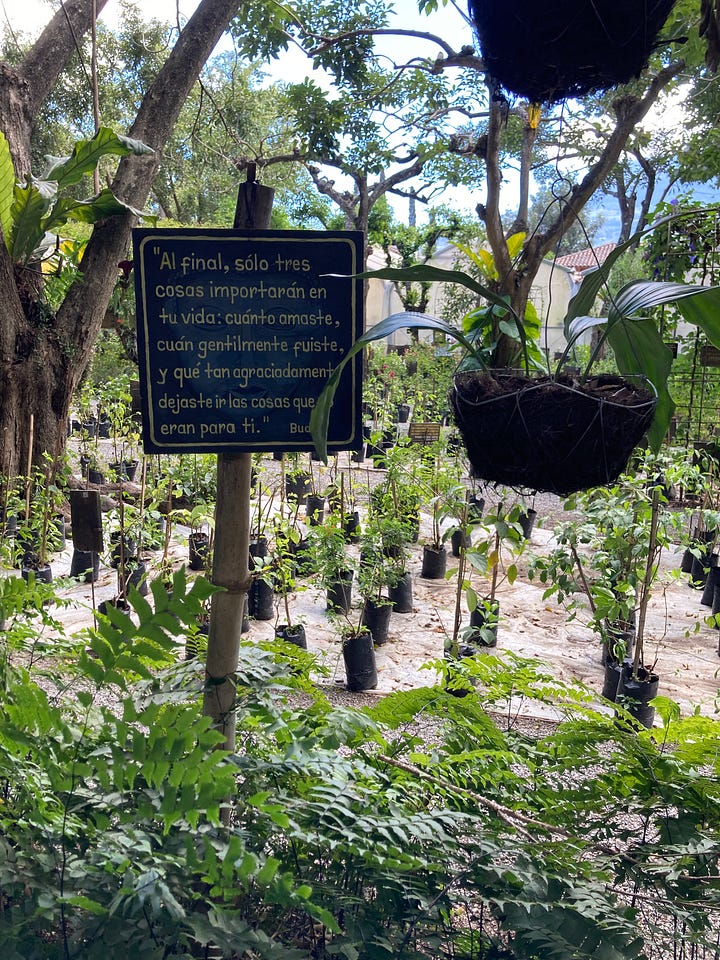
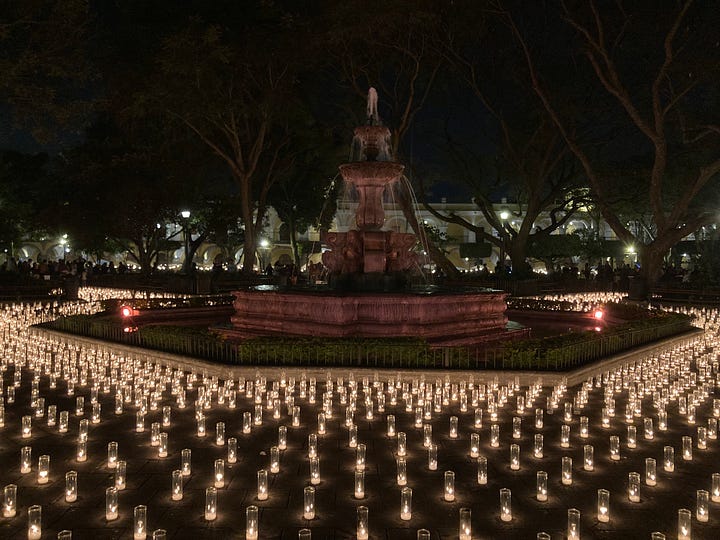
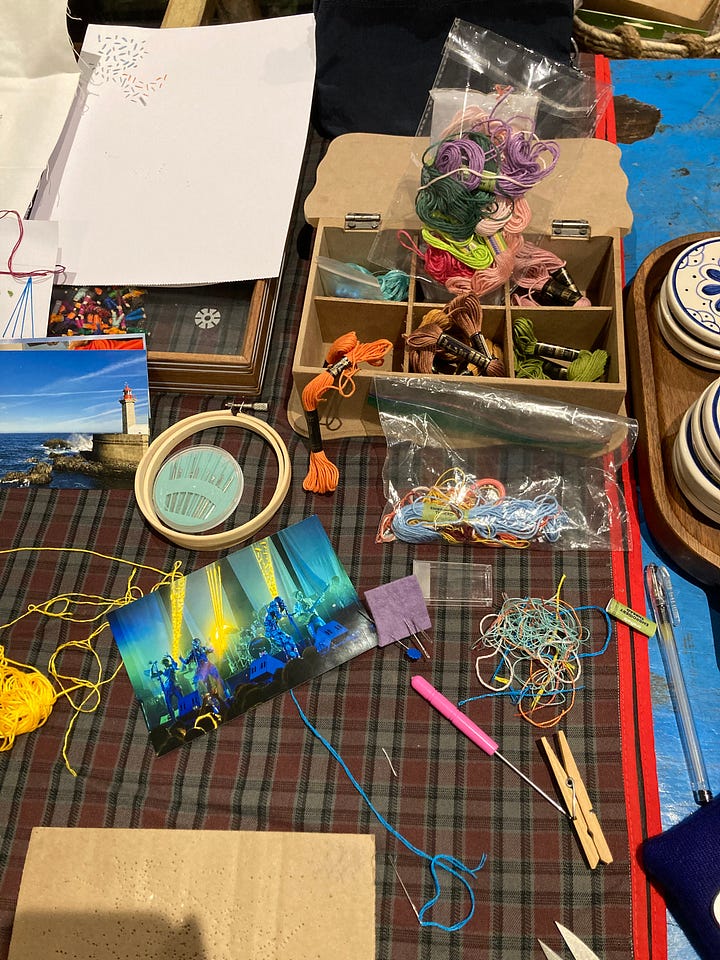
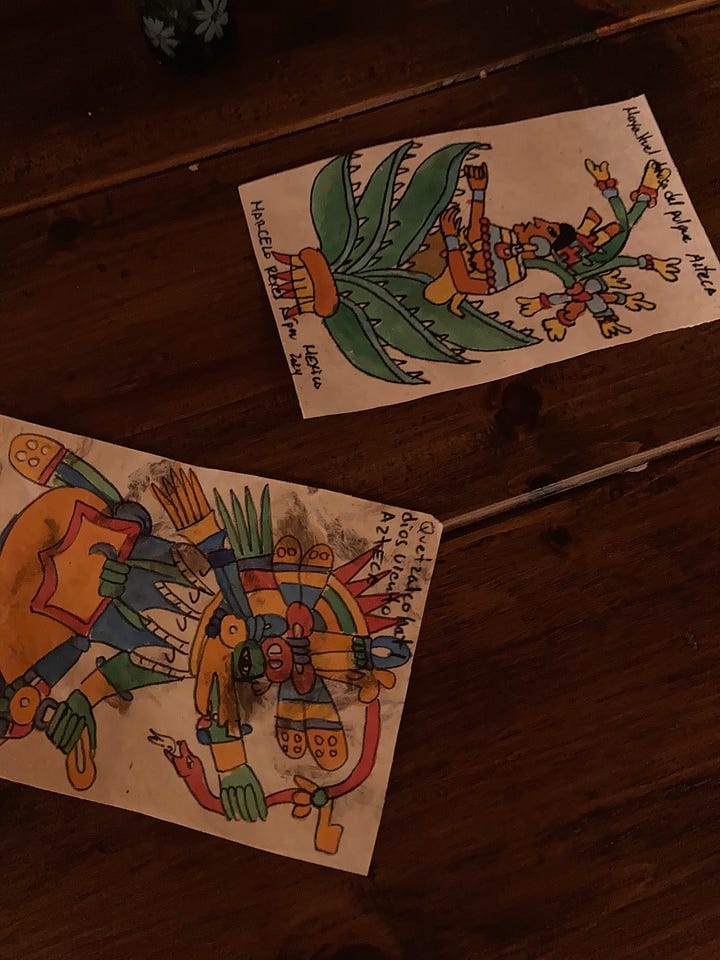
I appreciate your time. Thank you for reading! 💙 I also value your feedback (suggestions, critiques, constructive ideas…) as well as your tips or suggestions for future editions. I’d love to hear about you in the comments.
→ Or just click the heart symbol. That always makes me smile :-)
Fortunately, "The End’s” Director and Lead Writer, Adrienne Mackey, created an exhaustive informational packet with all the documentation “behind the scenes”. I draw from most of it to write this dispatch edition.



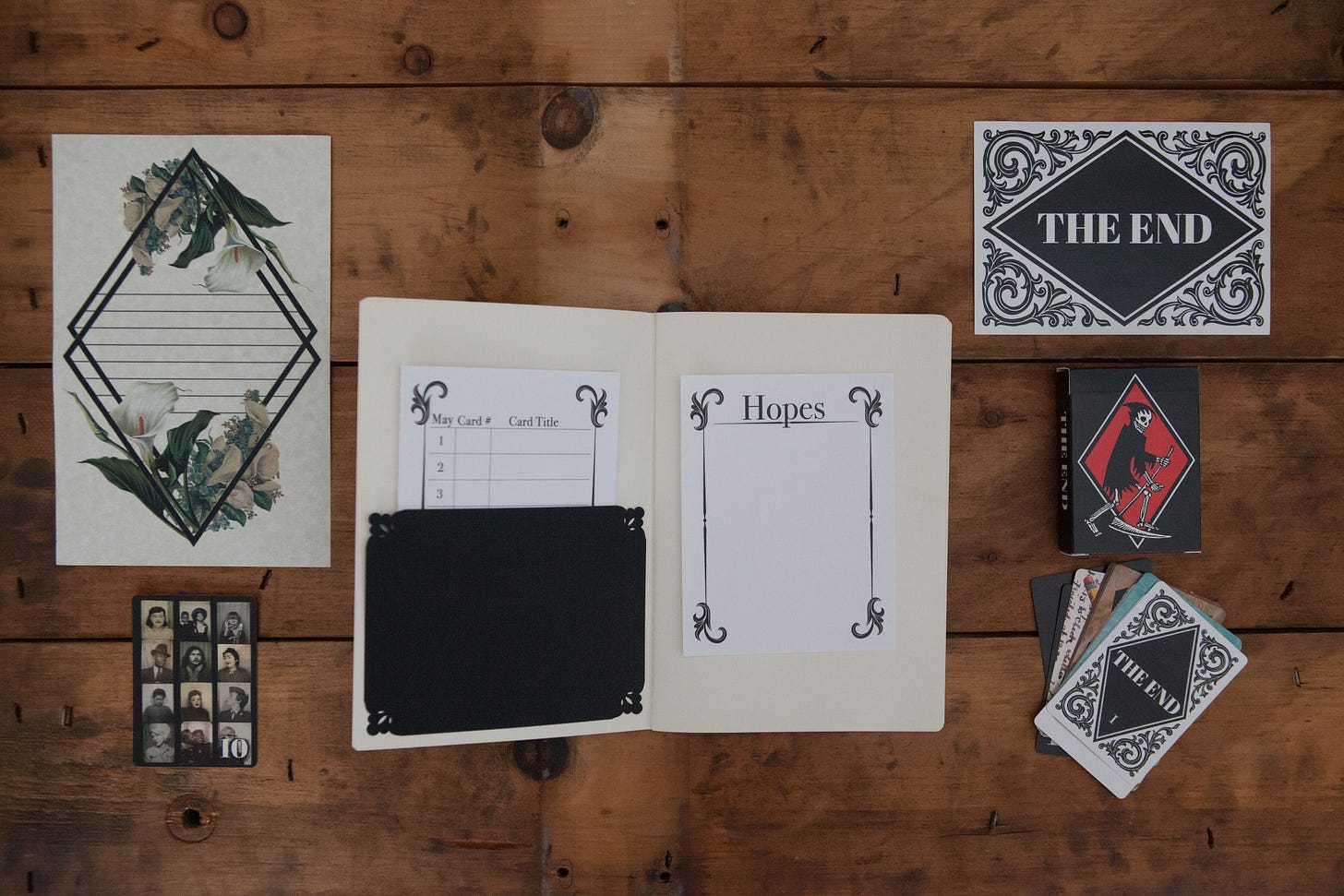

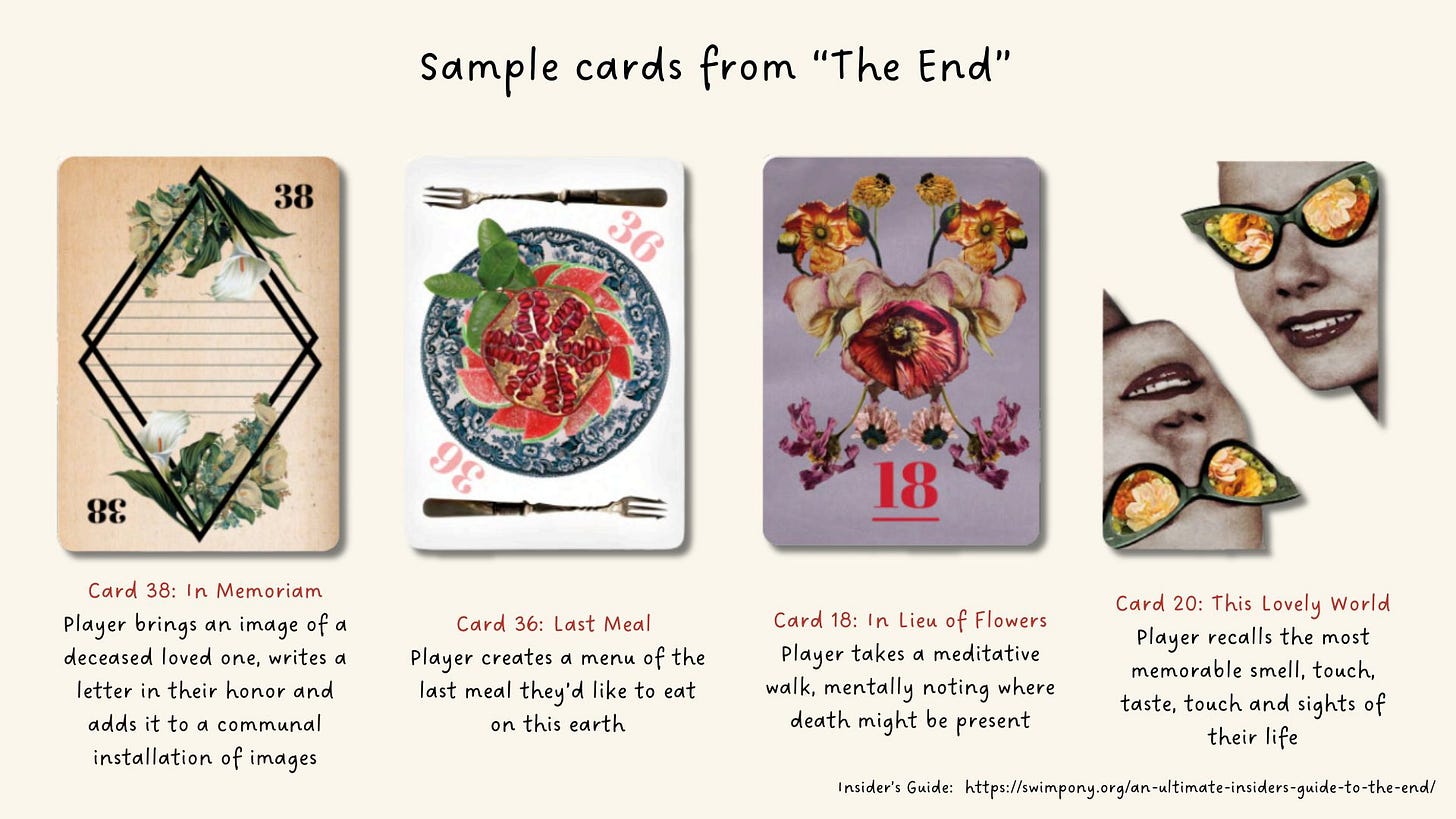

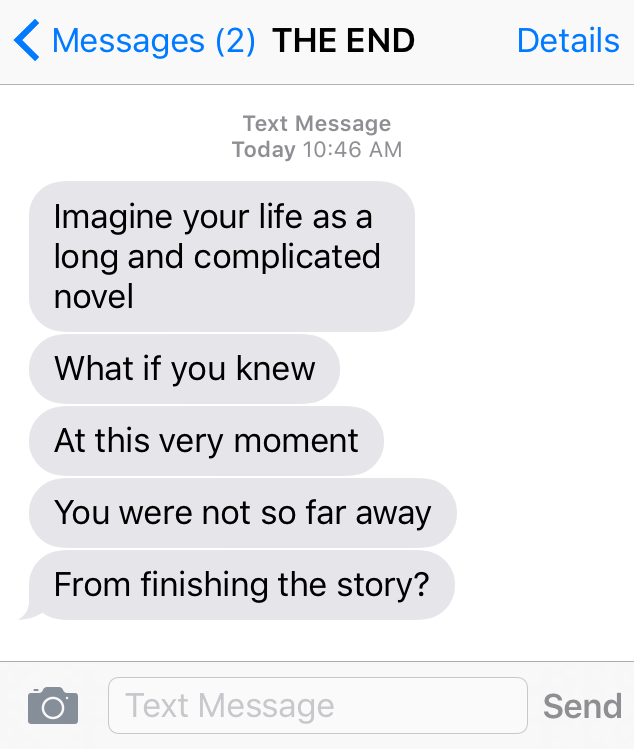
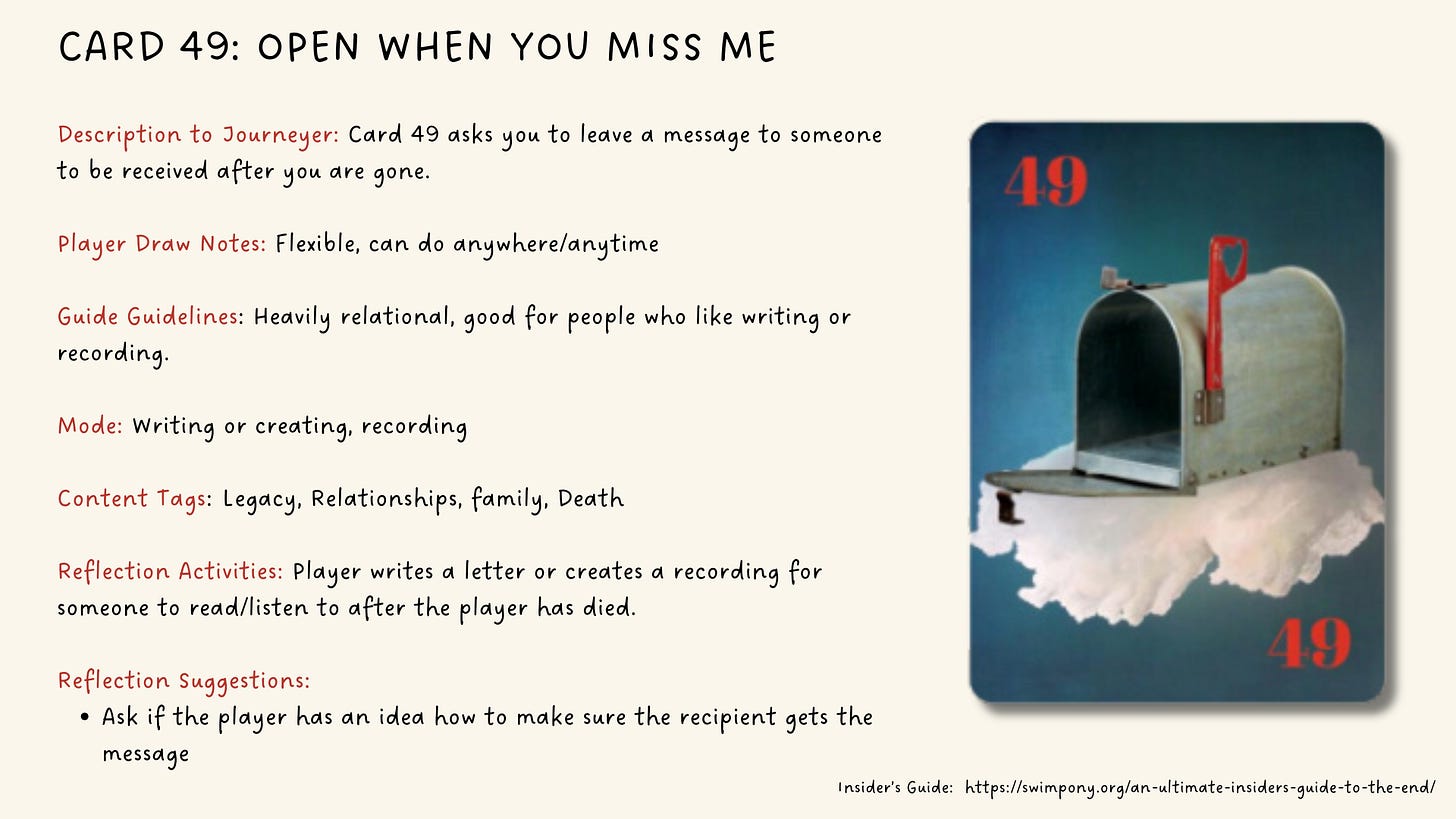
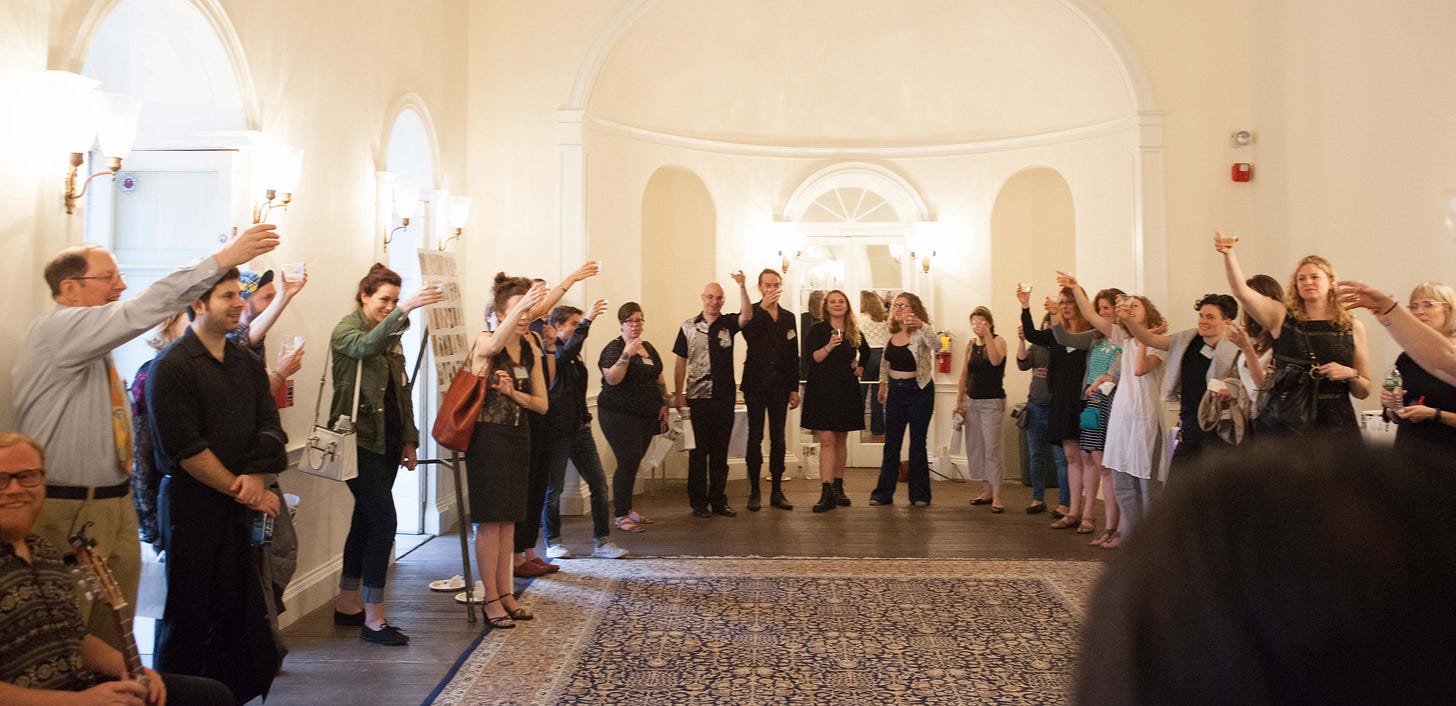

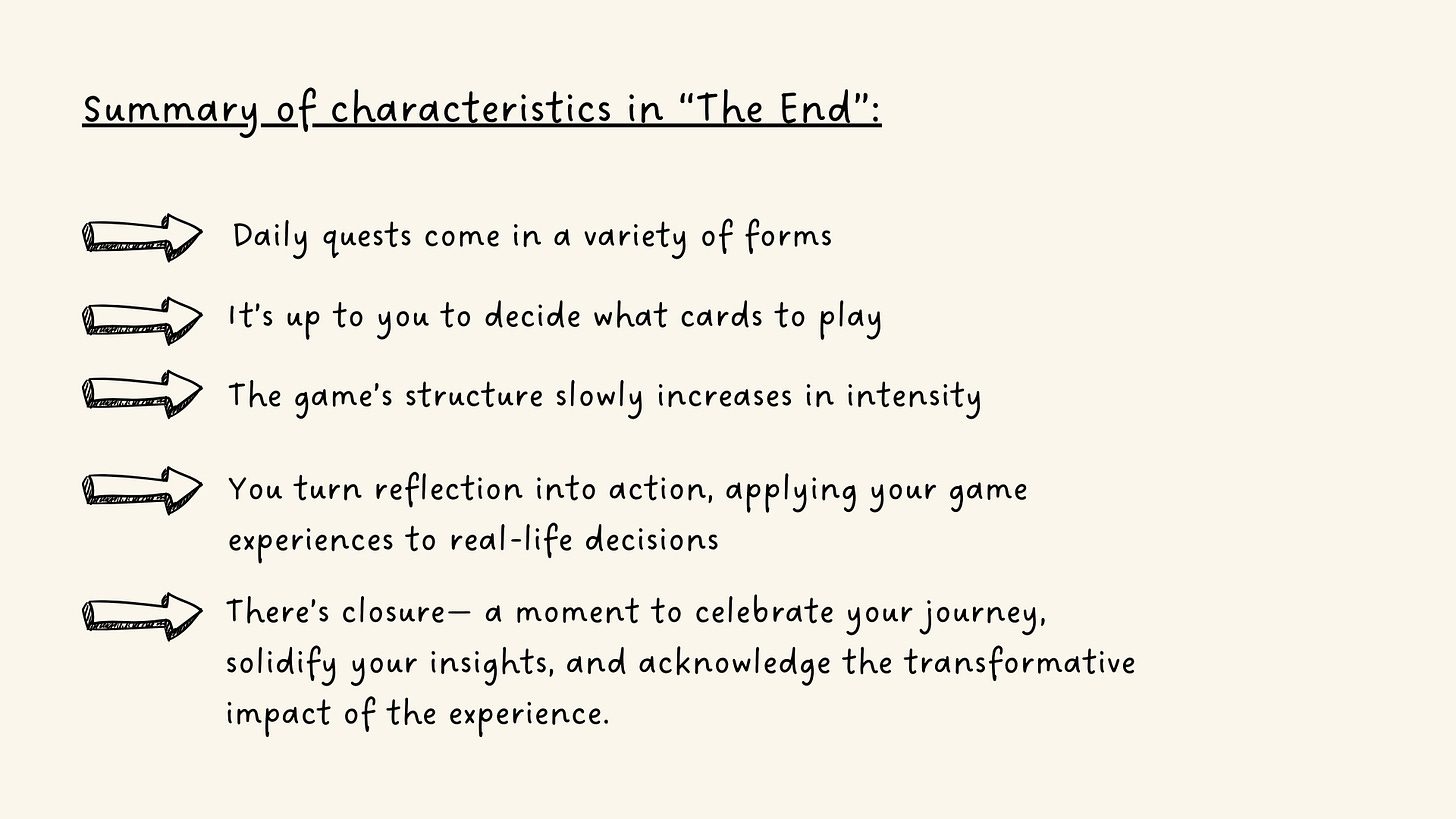
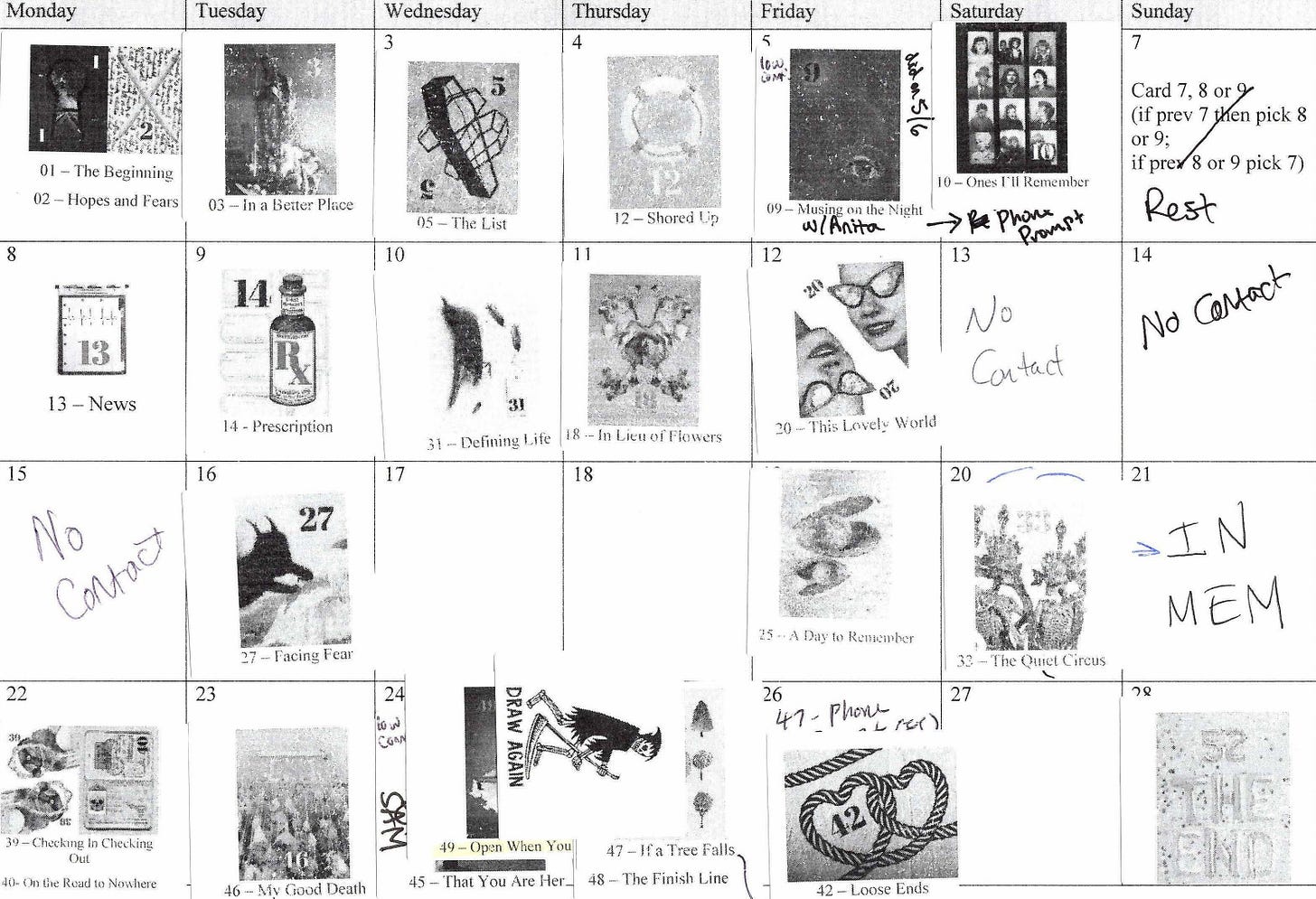

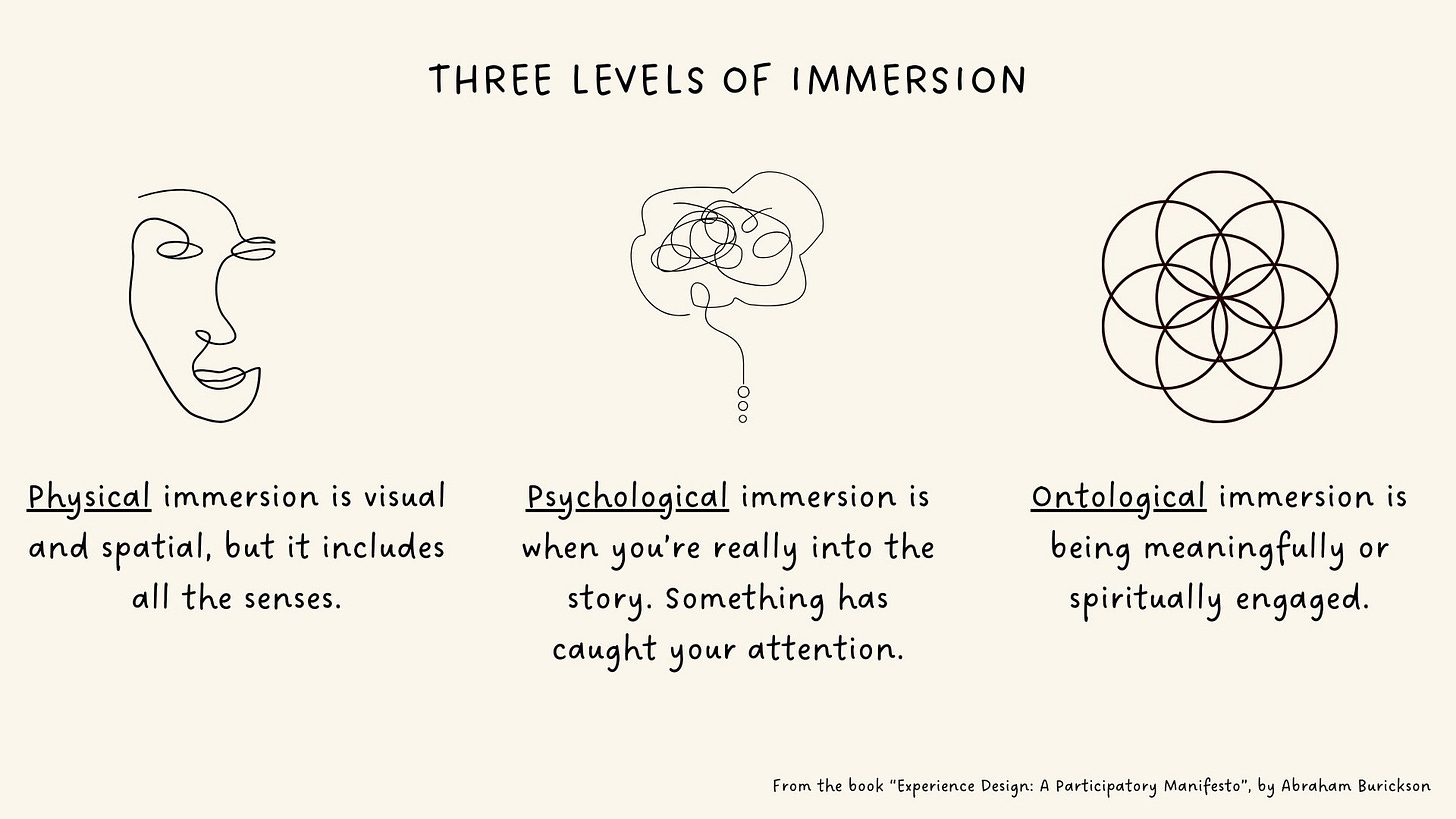

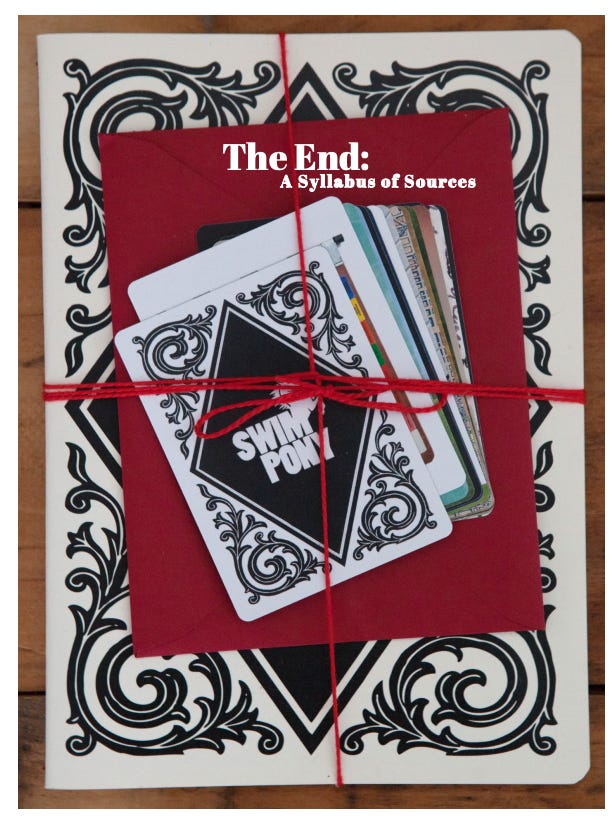
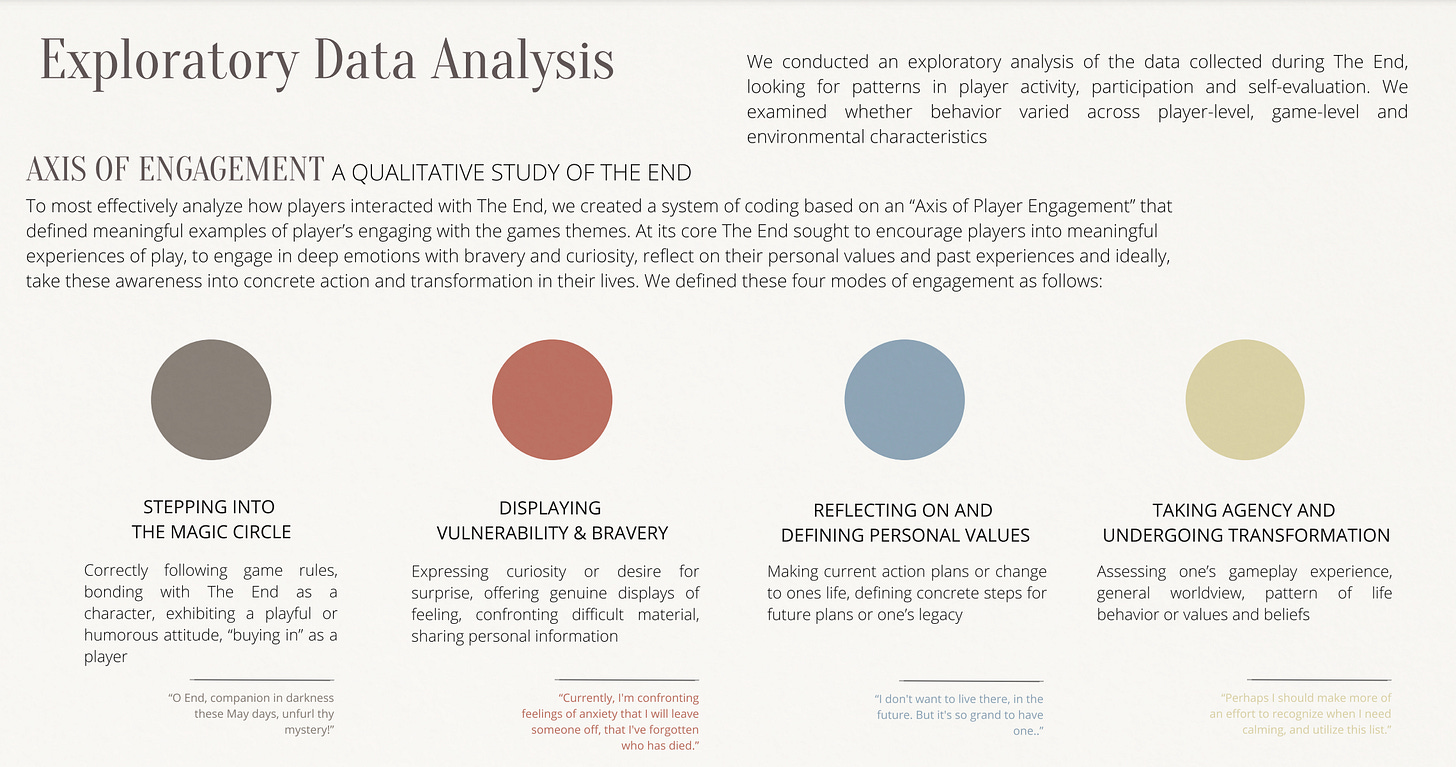
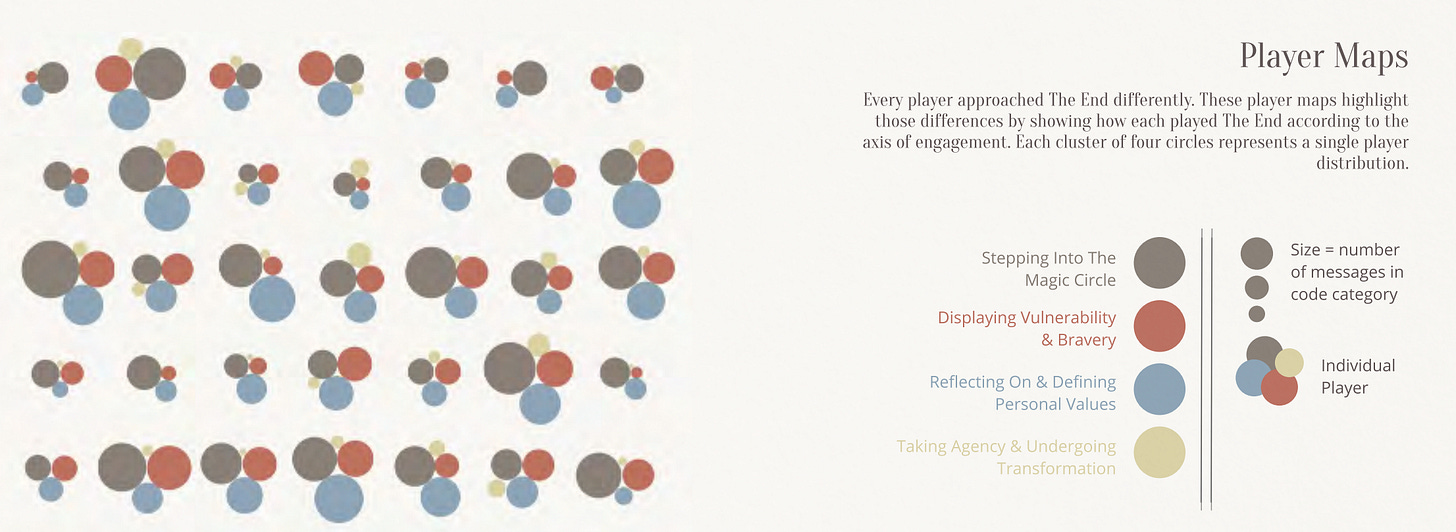


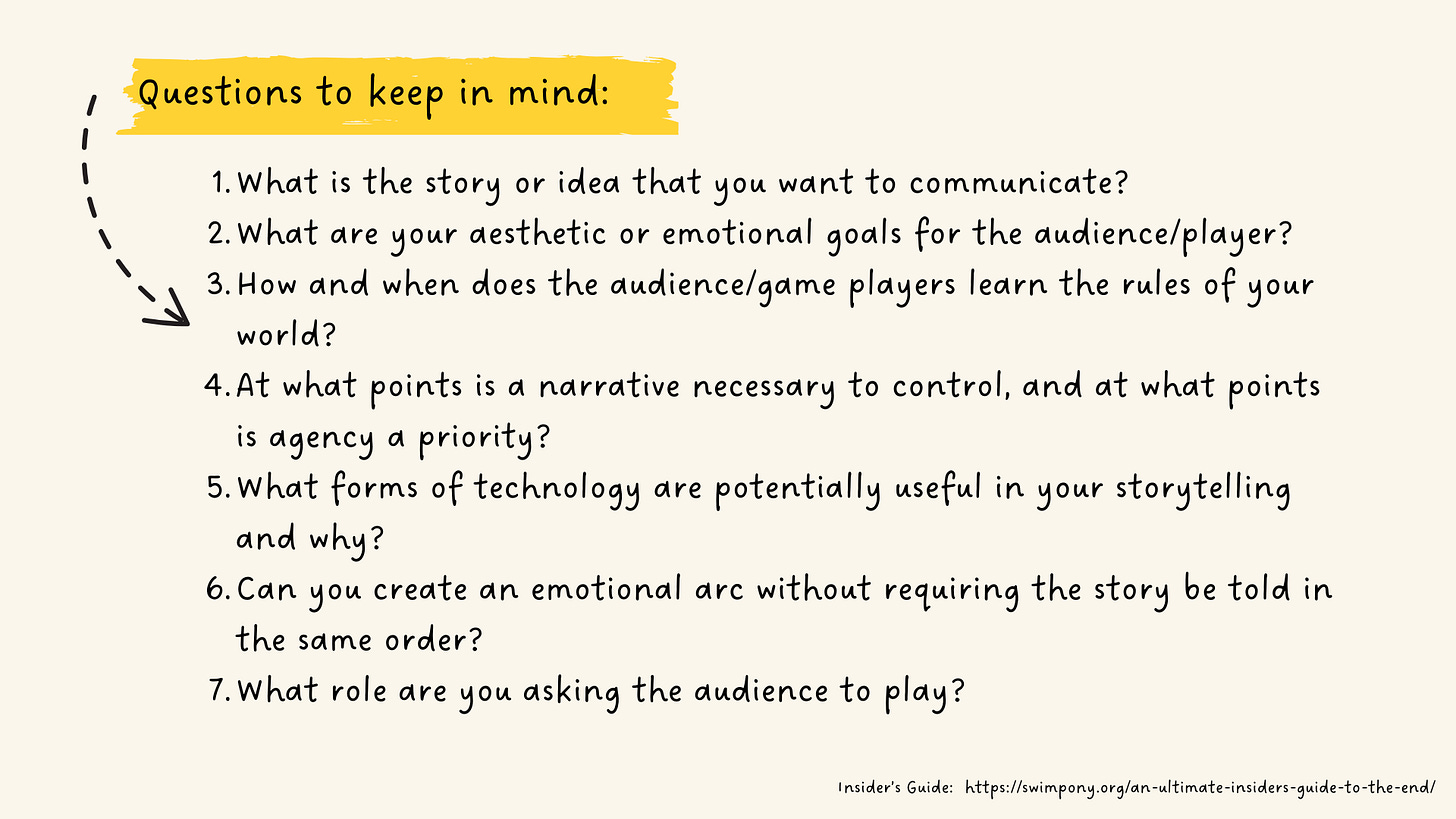

What a poignant game! It reminded me of my recent read: The Midnight Library by Matt Haig, although not as immersive as the game, the premise was similar: If you were in between life and death and were given a chance to choose another life to undo your regrets, what will you choose? Thank you sharing this ☺️
Ahh I love this!! The three levels of immersion really helped me also understand my own work and how to do for example some of the play activities around future playgrounds in a much better way. My brain is bursting.